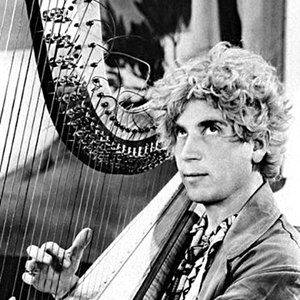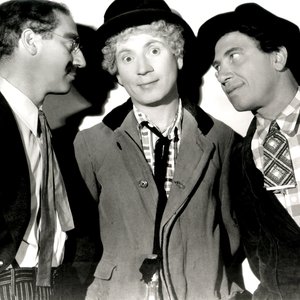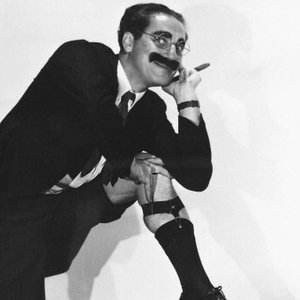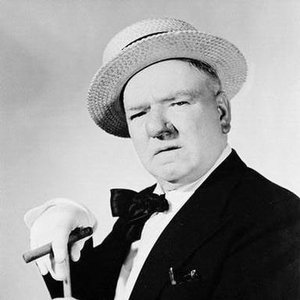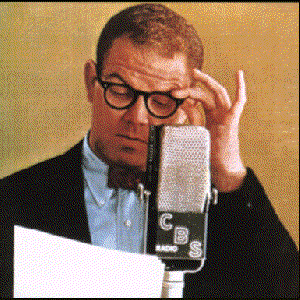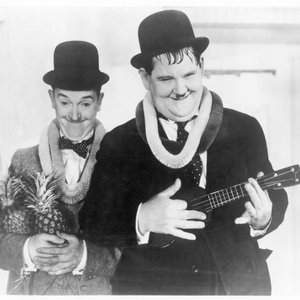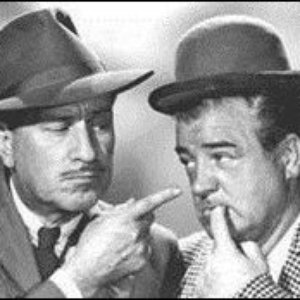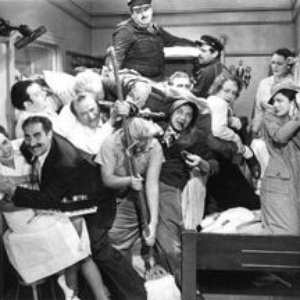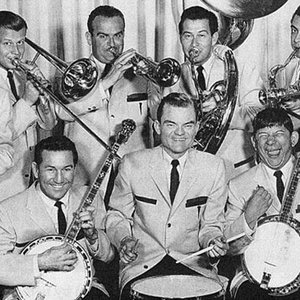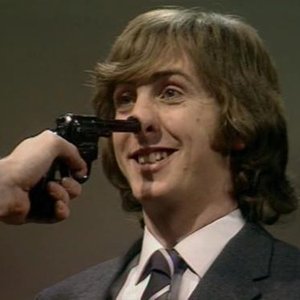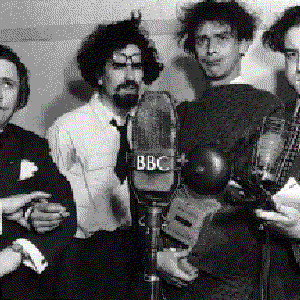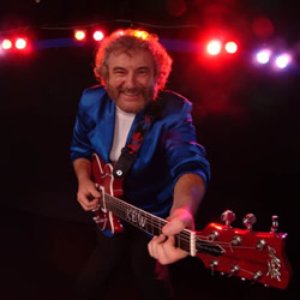Biography
-
Born
22 March 1887
-
Born In
Manhattan, New York, New York, United States
-
Died
11 October 1961 (aged 74)
Leonard "Chico" Marx (March 22, 1887 – October 11, 1961) was the eldest of the Marx Brothers.
He was originally nicknamed Chicko for his reputation as a ladies' man, or a "chicken chaser" in the popular slang of the day. A typesetter accidentally dropped the "k" in his name and it became Chico. It was still pronounced "Chick-oh" although those who were unaware of its origin tended to pronounce it "Cheek-oh". Radio recordings from the 1940s exist where announcers and fellow actors mispronounce the nickname, but Chico apparently felt it was unnecessary to correct them. As late as the 1950s, even Groucho used the wrong pronunciation for comedic effect. A guest on You Bet Your Life told the quizmaster she came from Chico, California and Groucho responded that he had a brother named "Cheek-oh." (Chico can sometimes be spotted in cutaways to the studio audience, out of character and costume.)
Marx used an Italian accent for his on-stage character; stereotyped ethnic characters were common with Vaudeville comedians. All the Marx brothers at some point in their careers performed "dialect characters," but Chico was the only one to continue this into his films.
The obvious fact that he was not really Italian was referenced twice on film. In their second feature, Animal Crackers, he recognizes someone he knows to be a shady character, impersonating a respected art collector:
Chico: "How did you get to be Roscoe W. Chandler?"
Chandler: "How did you get to be Italian?"
Chico: "Never mind—whose confession is this?"
In A Night at the Opera, which begins in Italy, his character, Fiorello, claims to not be Italian, eliciting a surprised look from Groucho:
Driftwood: "Well, things certainly seem to be getting better around the country."
Fiorello: "Well, I wouldn't know about that; I'm a stranger here myself."
Chico was a talented pianist. He originally started playing with only his right hand and fake playing with his left, as his teacher did so herself. Chico eventually got a better teacher and learned to play the piano correctly. As a young boy he got jobs playing piano to earn money for the Marx family. Sometimes Chico even got work playing in two places at the same time. He would acquire the first job with his piano-playing skills, work for a few nights, then substitute Harpo on one of the jobs. (During their boyhood, Chico and Harpo looked so much alike they were often mistaken for each other.)
In the brothers' last film, Love Happy, Chico plays a piano and violin duet with 'Mr. Lyons' (Leon Belasco). Lyons plays some ornate riffs on the violin; Chico comments, "Look-a, Mister Lyons, I know you wanna make a good impression, but please - don't-a play better than me!"
In a record album about the Marx Brothers, narrator Gary Owens stated that "although Chico's technique was limited, his repertoire was not." The opposite was true of Harpo, who reportedly could only play two tunes on the piano, which typically thwarted Chico's scam and resulted in both brothers being fired.
Groucho Marx once said that Chico never practiced the pieces he played. Before performances he soaked his fingers in hot water before going on instead. He was known for 'shooting' the keys of the piano. As part of the act he played passages with his thumb up and index finger straight, like a gun. (He appears in the film A Year to Remember (1948) playing a "pistol shot" version of the Australian folk song "Waltzing Matilda" to a group of Australian soldiers). Another example of his keyboard flamboyance is found in A Night at the Opera, where he plays the piano for a group of delighted children.
Chico became manager of the Marx Brothers after their mother, Minnie, died. As manager he cut a deal to get the Marx Brothers a percentage of a film's gross receipts - the first of its kind in Hollywood. Furthermore, it was Chico's connection with Irving Thalberg of MGM which led to Thalberg's signing the Brothers when they were in a career slump after Duck Soup (1933), made at Paramount Pictures.
For a while in the 1930s and 1940s Chico led a big band. Singer Mel Tormé began his professional career singing with the Chico Marx Orchestra.
Chico Marx was a compulsive womanizer, and had a lifelong gambling habit. His addiction cost him millions of dollars by his own account. When an interviewer asked him how much money he had lost from gambling, he answered, "Find out how much money Harpo's got. That's how much I've lost." Gummo Marx, in an interview years after Chico's death, said, "Chico's favorite people were actors who gambled, producers who gambled, and women who screwed." Chico's lifelong gambling addiction compelled him to continue in show business long after his brothers had retired in comfort from their Hollywood income, and in the early 1940s he found himself playing in the same small, cheap halls in which he had begun his career 30 years earlier.
The Marx Brothers' second-to-last film, A Night in Casablanca was made for Chico's benefit. Because of his gambling, the brothers finally took the money as he earned it and put him on an allowance, on which he stayed until his death.
He had a reputation as a world-class pinochle player. His brother Groucho said Chico would throw away good cards (with the knowledge of spectators) to make the play "more interesting." Chico's last public appearance was in 1960, playing cards on a television show, Celebrity Bridge. He and his partner lost the game, but it did not seem to bother him at all.
Chico had one daughter, Maxine, with ex-wife Betty Karp.
Chico died on October 11, 1961 from cardiovascular disease, aged 74. He is entombed in a crypt in the Freedom Mausoleum in Forest Lawn Memorial Park Cemetery, in Glendale, California. Chico's younger brother, Gummo, is in a crypt across the hall from him.
Artist descriptions on Last.fm are editable by everyone. Feel free to contribute!
All user-contributed text on this page is available under the Creative Commons Attribution-ShareAlike License; additional terms may apply.

